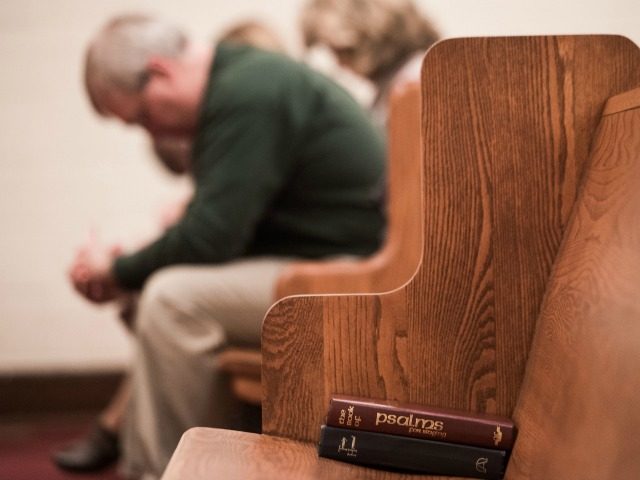RICHMOND, VA — The United States Court of Appeals for the Fourth Circuit issued a 10-5 decision on Friday ruling that Rowan County, N.C., county commissioners cannot begin official sessions with prayer, the First Liberty Institute announced following the decision. First Liberty represents the county and expressed disappointment that the court ignored precedent in the Supreme Court’s Town of Greece v. Galloway decision that deemed an opening prayer for legislative bodies acceptable under the Constitution.
“While we are disappointed in the Fourth Circuit’s decision to ban invocations before legislative meetings contrary to Supreme Court precedent, we are encouraged that the split in the vote on the Fourth Circuit demonstrates the need for the Supreme Court review on this issue,” Mike Berry, deputy general counsel for First Liberty, said.
First Liberty is also representing Jackson County, Michigan in a similar case that is currently pending before the United States Court of Appeals for the Sixth Circuit.
Writing in dissent, Circuit Judge G. Steven Agee pointed out that opening prayer for legislative bodies holds across the country, from the federal to local governments.
“Lawmaker-led prayer finds contemporary validation in the federal government as well,” Agee wrote. “Both houses of Congress allow members to deliver an opening invocation. The congressional record is replete with examples of legislators commencing legislative business with a prayer.”
For the specific case before the Fourth Circuit: “The Rowan County legislative prayer practice falls within the historical traditions recognized in Marsh and Town of Greece and the principles the Supreme Court articulated in both cases,” Agee wrote. “It is constitutional.”
But the majority came to another conclusion, one that, if taken up by the high court, Rowan County’s prayer practice would likely be upheld, legal analysts say.
“We conclude that the Constitution does not allow what happened in Rowan County,” J. Harvie Wilkinson III wrote for the majority. “The prayer practice served to identify the government with Christianity and risked conveying to citizens of minority faiths a message of exclusion.
“And because the commissioners were the exclusive prayer-givers, Rowan County’s invocation practice falls well outside the more inclusive, minister-oriented practice of legislative prayer described in Town of Greece,” Wilkinson wrote. “Indeed, if elected representatives invite their constituents to participate in prayers invoking a single faith for meeting upon meeting, year after year, it is difficult to imagine constitutional limits to sectarian prayer practice.”
The plaintiffs in the case “alleged that the prayer practice unconstitutionally affiliated the Board with one particular faith and caused them to feel excluded as ‘outsiders.’ In addition, they alleged that the overall atmosphere was coercive, requiring them to participate so they ‘would not stand out’ … or otherwise be singled out in a manner they speculated might negatively affect business before the board.”
A review of those supporting the plaintiff’s case reveals the motivation behind it, which includes the Americans United for Separation of Church and State, the American Humanist Association, Anti-Defamation League, and the Freedom from Religion Foundation.
First Liberty was joined in its case by religious liberty advocates, including the United States Justice Foundation, the Conservative Legal Defense and Education Fund and several states — West Virginia, Alabama, Arizona, Michigan, Nebraska, Nevada, Ohio, Oklahoma, South Carolina and Texas.
There are currently only three judges on the Fourth Circuit who are conservative. Two of the liberal judges — William Byrd Traxler Jr. and Albert Diaz — joined the conservatives for the five dissenting votes.

COMMENTS
Please let us know if you're having issues with commenting.